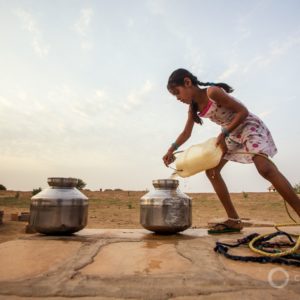The Stream, November 17: Keystone Pipeline Spills 210,000 Gallons of Oil in South Dakota
The Global Rundown
The Keystone Pipeline leaks 210,000 gallons of oil in northeast South Dakota. At the Bonn climate summit, nineteen countries commit to phasing out coal use. Dairy farming pollutes groundwater in New Zealand and makes more than half of rivers and lakes unswimmable. Climate change could increase worldwide hunger by 20 percent by 2050, warns the United Nations. Officials in India claim little will be done to address the country’s smog problem this year.
“Nothing more is likely to happen this year. We’re now praying. Only God can save us.” –An Indian authority, in reference to government efforts to squelch the dangerous smog enveloping parts of northeastern India. A lack of funding has slowed the official response to the smog, an annual occurrence caused by crop burning, industrial pollution, vehicle exhaust, and dust. Reuters
By The Numbers
210,000 gallons Amount of oil leaked from the Keystone Pipeline in northeastern South Dakota on Thursday morning. The spill, which officials do not believe impacted any waterbodies or drinking water systems, comes days before a Nebraska ruling on permits for the proposed Keystone XL pipeline. The Guardian
In context: Water and climate safety, finance security, drive Keystone XL conflict.
6.6 million Number of cattle in New Zealand, a country of 4.7 million people. Cow urine and cow dung are contaminating New Zealand’s groundwater. Dairy farming has also dirtied rivers and streams, making 60 percent of the country’s waterways “unswimmable.” The Economist
Science, Studies, And Reports
A report by UN food security researchers warned that threats from climate change, such as the increasing numbers of drought and floods, could lead to a 20 percent jump in hunger and child malnutrition by 2050. The UN report hopes to give governments a clearer look at the threats they face and possible solutions for mitigating hunger crises. Reuters
On The Radar
An anti-coal alliance of nineteen countries, led by the UK and Canada, was launched this week at the UN climate talks in Bonn, Germany. Members of the Powering Past Coal Alliance are committed to ending coal use and hope to grow membership to 50 countries by the end of next year. The Guardian
Kayla Ritter is a recent graduate of Michigan State University, where she studied International Relations and Teaching English to Speakers of Other Languages. She is currently based in Manton, Michigan. Kayla enjoys running, writing, and traveling. Contact Kayla Ritter




